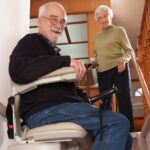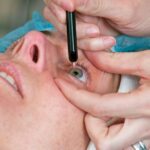No one ever wants to think that their elderly loved ones could be at risk of nursing home abuse. Sadly, it’s an unfortunate reality that can affect even the most devoted and caring family members.
Nursing home abuse is a serious problem, with statistics showing that one in three seniors experiences some form of mistreatment while they are staying in senior care facilities or receiving custodial services outside of their homes. Here are some of the signs that may indicate a loved one is being abused in a nursing home.

1. Signs of physical injury
Bruises, scratches, and other forms of physical trauma can all signal that a nursing home resident is being abused. While it’s not always easy to detect such signs due to the elderly person’s decreased mobility or skin sensitivity, any visible wounds should be investigated further.
Search for the term “nursing home abuse lawyer near me” to find a legal professional that can help you with your case. It’s important to note that elderly individuals are more prone to falls or injuries due to their age, so it is essential not to jump to conclusions if physical signs of abuse are spotted. This is why it is so important to always be aware of changes in your loved one’s behavior and overall health.
2. Changes in behavior or attitude
Nursing home residents may have difficulty expressing themselves, but watch out for any changes in their behavior or attitude. This can include sudden mood swings, withdrawal socially, refusal to show affection, being unusually quiet or withdrawn, avoiding eye contact, and other nonverbal cues.
Additionally, they may become more aggressive towards you or the staff. These could be signs that something is wrong and that they are uncomfortable or scared. It’s important to talk to staff members and get an understanding of what is going on with the resident.
3. Unusual financial activity
If you’re the legal guardian of your loved one, pay close attention to any financial transactions they’re making. Be wary if their accounts show a withdrawal or transfer of funds that can’t be explained or is outside the normal pattern of activity.
Also, take note if there are frequent payments made to third parties you don’t recognize — such as care staff, medical professionals, or lawyers — especially if those payments seem excessive compared to the level of services being received. Additionally, look out for signs that someone else has been added or removed from your loved one’s account without permission.
Related Posts
4. Poor hygiene or malnutrition
In many cases, residents are neglected by staff who don’t provide them with adequate nutrition or help with bathing, brushing their teeth, combing their hair, and changing clothes. This can lead to numerous health problems in addition to physical and emotional distress for the resident.
It’s important to monitor your loved one’s weight regularly as well as their overall appearance to make sure they’re being given the proper care. If you see any red flags, contact the facility administrators right away. This is a sign of potential neglect or abuse and should be taken seriously.
5. Hiding information from family and friends
If a nursing home resident’s loved ones ask for information about their care or well-being, but the staff is evasive or evades questions altogether, this can be a sign of abuse. The facility should also allow visits from family and friends with advance notice to ensure that all residents are treated fairly.
Nursing home staff should not limit contact between residents and their families without a valid reason. If you suspect any type of abuse is happening, report it right away to the appropriate authorities so that those responsible can be held accountable.

6. Unreasonable restrictions
Nursing home residents should be allowed to move around freely throughout the facility, and staff members shouldn’t keep them from leaving their rooms unless it’s necessary.
Additionally, they should have access to regular activities that are tailored to their interests and needs. If restrictions seem unreasonable, or you sense that your loved one is being unfairly restrained, this could be a sign of abuse. Additionally, if the staff won’t let you visit or talk to your loved one alone, this could be a sign that something is wrong.
No matter how much we trust the staff of a nursing home, the unfortunate reality is that elder abuse still occurs within facilities. It’s important to know what signs of abuse to look for and take any concerns seriously. If you feel something is off, don’t hesitate to contact authorities and get help for your loved one. With swift action, you can help prevent further harm and get justice for those who have been wronged.





I never knew someone abused in a nursing home could become anti-social while neglecting their health. I can see how finding someone who could fend for the victim’s rights is a good idea so they can get the settlement they deserve. I will keep this in mind and consult a lawyer if this happens to my uncle.